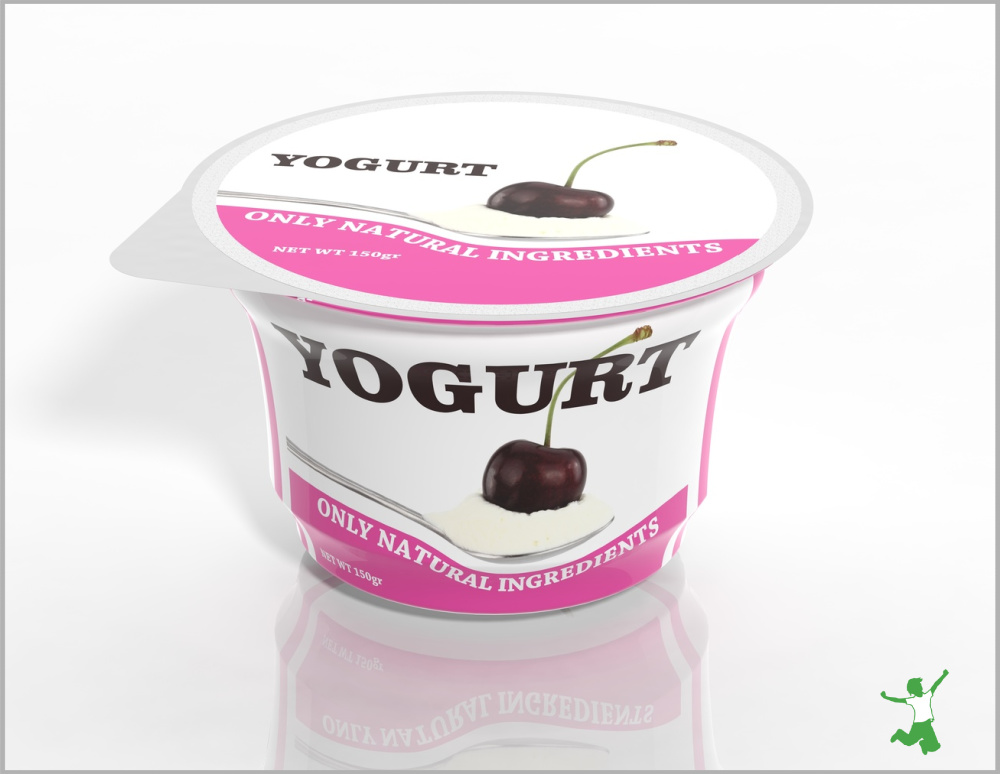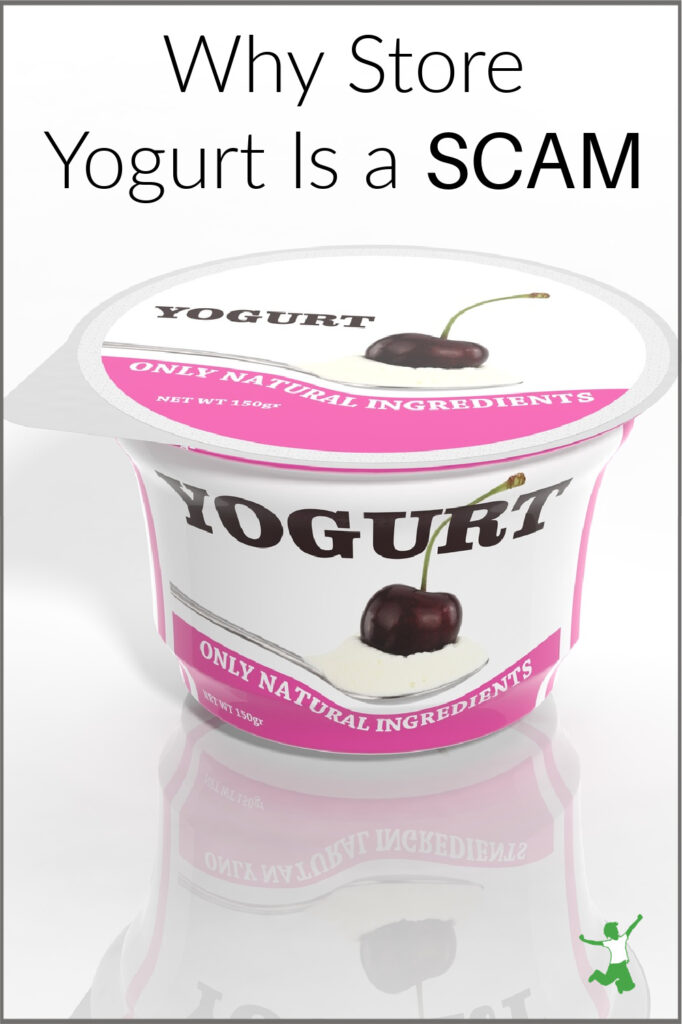The reasons why it is usually a waste of money to buy yogurt at the grocery store, the very few brands that are legit, and the best approach for enjoying yogurt that is truly probiotically active without breaking the bank.

As I was standing in line at the grocery store the other day, I noticed an older lady in front of me had an entire cart loaded with commercial yogurt.
I immediately felt very empathetic as she obviously was placing high importance on store yogurt in her diet. Perhaps she was attempting to help some sort of chronic digestive issue caused by the typical overmedicating of people her age.
What is really sad is that it is virtually certain that she was experiencing little to no benefit from her efforts and money spent.
This is because standard store yogurt, including those squeezable yogurt tubes for kids, is not the probiotically beneficial food that TV commercials and other compelling advertisements would lead you to believe.
The truth is that commercial yogurt is fermented for very short periods of time.
This includes highly popular Greek yogurt alternatives.
Improper Fermentation
The length of fermentation for commercial yogurt brands is so short (one person in the dairy industry told me that it is an hour or even less) that thickening agents are commonly added to give it the look and feel of real yogurt.
This is why Dr. Natasha Campbell-McBride MD, author of Gut and Psychology Syndrome, recommends avoiding commercial yogurt.
Instead, she recommends making yogurt at home and fermenting it for a full 24 hours to achieve maximum gut healing benefits.
The Specific Carbohydrate (SCD) Diet also recommends yogurt that is cultured for a full 24 hours.
Milk Sugars (Lactose) Still Present
Another problem that occurs by cutting corners at the factory is that commercial yogurt still contains plenty of lactose, as there was insufficient time for it to be completely consumed by the beneficial microbes.
Lactose is a disaccharide sugar, which is very difficult to digest for anyone with a digestive disorder.
Raw milk and raw yogurt contain lactase, the enzyme for digesting lactose, but pasteurized and homogenized store brands do not even if they are organically certified (heat destroys the enzyme lactase).
Thus, consuming commercial yogurt can often trigger autoimmune symptoms until steps are taken to heal and seal the gut wall so that it is no longer permeable.
In short, not only will store yogurt NOT help heal the gut, it can potentially make the situation WORSE.
GMO Sweeteners
Another problem with commercial yogurt is that sweetened versions often are of GMO origin.
Even health-savvy shoppers often don’t realize that if the label on commercial yogurt says “sugar”, it is virtually certain that sugar is also from a GMO source (beet sugar).
Only if the label says “cane sugar” or “organic sugar” does this guarantee that the sugar is GMO-free.
Other Considerations
Of course, making yogurt at home permits the selection of high-quality milk and avoidance of all the additives and sugar added to most commercial versions.
Yogurt fermented for 24 hours will most definitely assist your gut with the help of beneficial (though transitory) cultures that good quality yogurt is loaded with.
It is also helpful to note that yogurt made with raw milk will be naturally more drinkable-style like kefir than yogurt made with heated or pasteurized milk.
Cannot Make Yogurt Yourself?
The best policy when it comes to yogurt is to always make it yourself or buy it from a small farm that uses quality grass-fed milk (preferably raw) and ferments it properly.
You don’t need a yogurt maker! I make raw yogurt using a slow cooker. You can even make yogurt using your microwave (turned off, of course!) or oven as a low-temperature incubator.
If you must buy commercial yogurt when traveling, be sure to seek out one of the only two brands of 24-hour yogurt I’ve found that are commercially available (White Mountain and St. Benoit).
If you’ve come across any others, please add them in the comment section!
My online shopping hack will help you find these brands very quickly even if you are unfamiliar with the area you are visiting.








How can a thermally sealed packet that is stored on a shelf be REAL yogurt! How can shoppers be so ill informed! This rubbish will only sell if there is a market for it, simple don’t buy it! The sad thing is that children will never learn the truth either if adults buy these sugar filled sacks of ‘who knows what’ which is labelled as yogurt….PLEASE teach your children the REAL thing……yogurt is a LIVING food!
I just started a (beginner) blog and just shared how I make my own yogurt in a crockpot, then wrapped up in a blanket overnight. I mentioned how I don’t know how most store yogurts are considered yogurts either! I’ve been so excited that many I my friends and new followers are trying some of the things I share, but I don’t want to spread incorrect information if course. I only ferment mine about 12 hours and don’t think my technique would work for 24 hours. How do you recommend making your own yogurt??
A naturopath told me to buy saugeen brand yogurt. Is this also bad???
What about @Nancy’s Organic yogurt ? Made here in Oregon ?
Very true….Even though many claim to have live acidophiles the amounts are negligible and the junk in these far outweigh any benefits…. :/
I have a question. I buy Nancy’s yogurt. Plain, or Honey Yogurt. can I sit this in a warm place to up the probiotic rate ?
I’ve stopped purchasing this long ago. I need to make some more raw yogurt.
So ALL brands sold in stores are bad? There’s not one single acceptable brand?
We make our own with raw grassfed milk. I make a honey syrup with serviceberries (they grow wild on our property, so they’re FREE) that I like to mix with it. We also use it to make soft yogurt cheeses. It’s so easy, I don’t know why anybody wouldn’t make their own, really. I can’t believe I waited so long to start making it!